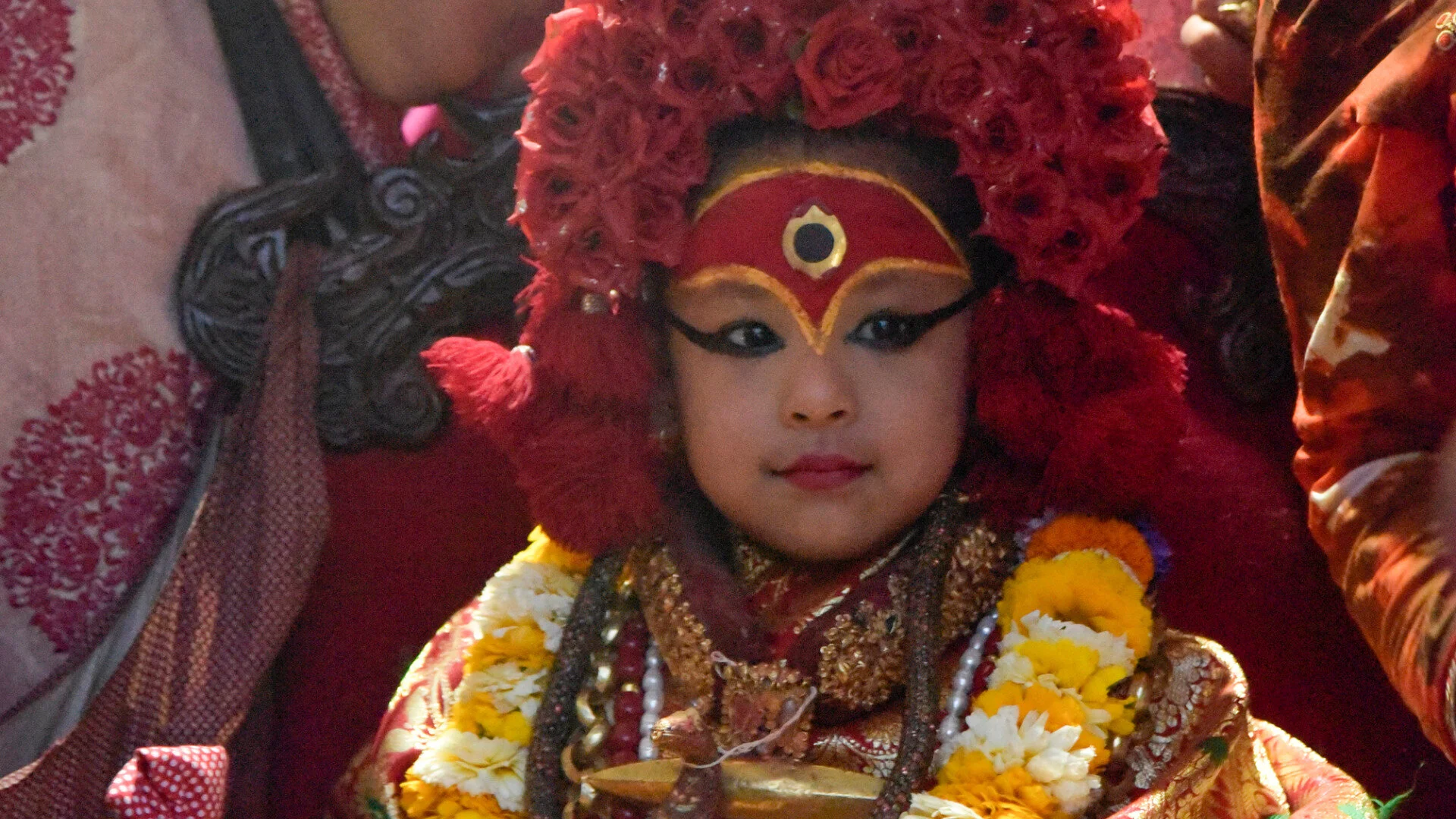The most well-known tale of the living goddess was born during the reign of these Malla Kings.The chronology of Malla kings varies in multiple chronicles. The word Malla denotes wrestler. During the reign of the second Rajput Dynasty in Nepal Mandala, the son of kking Ari Deva was a valiant wrestler. He was given the title of Malla and was known as Abhaya Malla. It was during his reign Nepal Sambat calendar was introduced. “Nepal era introduced, beginning in October 880 AD”- (Wright, 1990: 314)
After which historical lines are blurry of the Malla Kings. Their lineage resurfaces after a significant amount of time in the city of Bhaktapur. A township built by king Ananda Malla, second son of king Abhaya Malla it is from here the Malla Era of Nepal Mandala began.
According to legends, during the conquest of the Mugal Empire king Harisinha Deva, a king of Ayodhya Dynasty who ruled Simraungarh fled to Nepal Mandala along with his people. It is said Bhaktapur and Simraungarh had good relations fortified by trade and marriage. They were welcomed, with open arms in Bhaktapur and both cultures assimilated to create the unique identity of Bhaktapur.
A part of this assimilation was the introduction of Tulaju Devi. She is commonly known as Taleju Bhawani. Over time she became the tutelary deity (family deity) of the Malla Dynasty. She is believed to have been the tutelary deity of king Harisinha Deva.
She (Tulaju Devi) is worshipped, through a sacred yantra which was brought to Bhaktapur by King Harisinha Deva’s people.
Today, temples of Taleju Bhawani can be found in all of the Malla kinships of Nepal Mandala. In Bhaktapur, her yantra is housed in a sacred courtyard. Whereas in its sister states she has two mammoth temples built in traditional pagoda design. The construction of both, were in the late Malla period. The temple in Kathmandu was built by king Mahendra Malla in 1500 AD, and that of Lalitpur was first built by king Siddhi Narshinga Malla in 1640 AD and later by king Srinivasa Malla in 1667 AD after it was damaged by a fire.
The assimilation of Taleju and Kumari occurred in Kathmandu and is said to have been during the reign of King Jaya Prakash Malla, the last Malla king of Kathmandu. He is also the king who commissioned the chariot festival of the living goddess during Yenya Punhi (Indra Jatra).
The talepassed down from oral traditions goes as follows.
The last ray of sunlight had fallen and the people of Nepal Mandala slowly made ready their bed. At Yeh Lyakhu (Kathmandu Durbar) the palace gates were shut. The guards made their regular patrol. The Byanjankars (cooks) prepared the royals their nightly meal. After which the queen left for bed, and asked her husband to join soon.
The king, however, had a different intention.
The moon had almost reached the centre of the sky. The king felt the time was right. He made his way through the royal courtyard and entered a secret room.
“You’re late today? Was anything the matter?”
“No, I was just waiting for the courtiers to fall asleep.” said the king.
The room was lit by a dim lamp, at the center of which was a small table. The king made ready the board and dice (a game of Tripasa) atop it.
“How were your people today?”
To which the king responded, “Nothing of urgency came up. Only news of the Gorkha Rajas (Kings) another triumph. His eyes are set on this Mandala, he will not rest until he conquers it.”
The king took a brief pause, and with hopeful eyes looked to her and asked, “What do you think I should do?”
“For now do nothing,” she paused to throw the dice and continued, “The whispers of war can be heard. The people are already scared! For when the tower of this valley falls ring the war bell. Fortify your gates, and make arms ready.”
The king made a mental note and paused to take a deep breath. He took the dice and threw them.
“Aha, beautiful!” he looked please at the results.
He looked to her and asked, “Should I be worried about my neighboring kingdoms?”
She took the dice, and just as she was about to roll them, the door was bust open!















